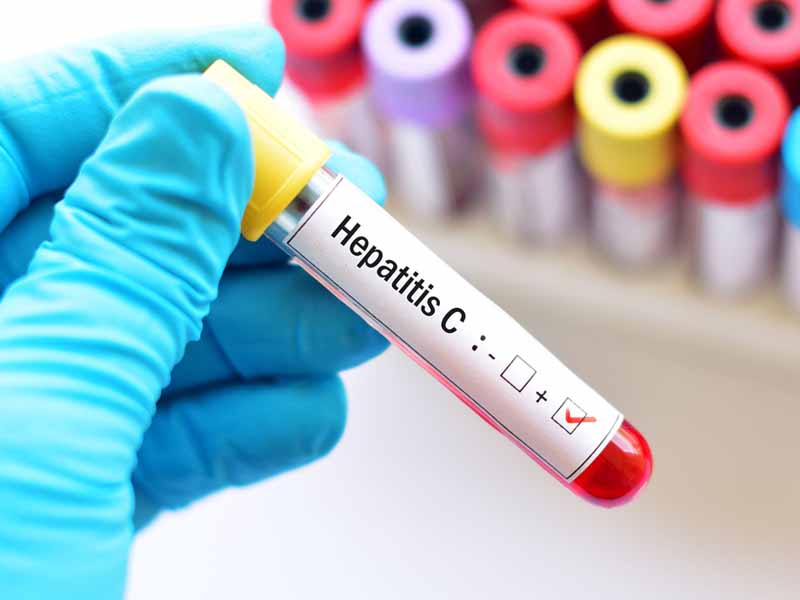Final Recommendation
USPSTF: Screen All Adults 18-79 for HCV Infection
March 16, 2020 04:49 pm News Staff – According to HHS, hepatitis C infection -- if left untreated -- is associated with more deaths than the top 60 other reportable infectious diseases combined. Yet even as the number of cases of acute HCV infection has more than tripled since 2010, new antiviral drugs have allowed for safer, more effective treatment of the disease.

To combat this public health problem, the U.S. Preventive Services Task Force on Mar. 2 posted a final recommendation statement and final evidence summary on screening adolescents and adults for HCV infection. Based on its review of the evidence, the USPSTF recommended screening for HCV infection in adults ages 18 to 79. This is a "B" recommendation.
The USPSTF also suggested that clinicians consider screening patients younger than 18 and older than 79 if they are at high risk for infection, as well as pregnant patients younger than 18.
"Hepatitis C affects millions of people across the country," said task force member Michael Barry, M.D., in a press release. "We recommend screening all adults regardless of their risk because new evidence shows that more people can benefit from this service than ever before."
"People with hepatitis C do not always feel sick and may not know they have it," added USPSTF Chair Douglas Owens, M.D., M.S. "Screening is key to finding this infection early, when it's easier to treat and cure, helping reduce illnesses and deaths."
Update of Previous Recommendation
The new final recommendation expands the task force's 2013 final recommendation. At that time, task force members recommended screening people at high risk for infection and also recommended offering one-time screening for adults born between 1945 and 1965. The AAFP supported that final recommendation at the time.
To update the recommendation, the USPSTF conducted a systematic review of the evidence on screening adults for HCV infection, as well as on the comparative effectiveness of antiviral therapies. The latest review focused on new direct-acting antiviral regimens and was expanded to include adolescents.
The task force found that since 2013, the prevalence of HCV infection has increased in adults 20 to 39. It also found that HCV infection prevalence rates in adults born between 1945 and 1965 has remained relatively high and will increase among the elderly as this population ages.
Based on those factors, the USPSTF concluded that broadening the age for HCV screening beyond the range indicated in the 2013 recommendation would identify patients at earlier stages of HCV infection; these patients could significantly benefit by receiving effective treatment before developing complications.
Regarding treatment options, the USPSTF stated that treatment of HCV infection has evolved since 2013, resulting in greater benefits and fewer harms to patients. Current DAA regimens are of shorter duration, generate higher sustained virologic response rates and are associated with fewer serious harms than previous treatment regimens.
STORY HIGHLIGHTS
Response to Public Comment
The new final recommendation is consistent with the task force's draft recommendation on the topic, which was posted for comment on the USPSTF website from Aug. 27 to Sept. 23, 2019.
Some commenters asked the USPSTF to include a definition of high risk, but the agency concluded that an extensive list of risk factors was beyond the scope of the recommendation statement and suggested that interested parties visit the CDC's Testing Recommendations for Hepatitis C Virus Infection webpage.
In response to comments expressing concern about the lack of guidance on screening intervals for pregnant adults, the USPSTF added language addressing this issue to the recommendation's Practice Considerations section.
The USPSTF also added language about counseling and consent to the Screening Implementation section and clarified its call for research in pregnant individuals in the statement's Research Needs and Gaps section.
Up Next
The AAFP's Commission on Health of the Public and Science plans to review the USPSTF's final recommendation statement and evidence summary and will then determine the Academy's stance on the recommendation.